Lost in the jungle: How the people of ava live — the most secretive people on the planet
In the Brazilian state of Maranhão lives the most secretive tribe on earth, which calls itself ava. These people have no contact with the outside world, so this world, for several centuries, has been too cruel to them. Photographer Domenico Pugliese was very lucky — he became one of the few who managed to see Ava and even live among them for a while. (Careful! There are a lot of Amazonian Indians dressed in traditional nothing in the article).
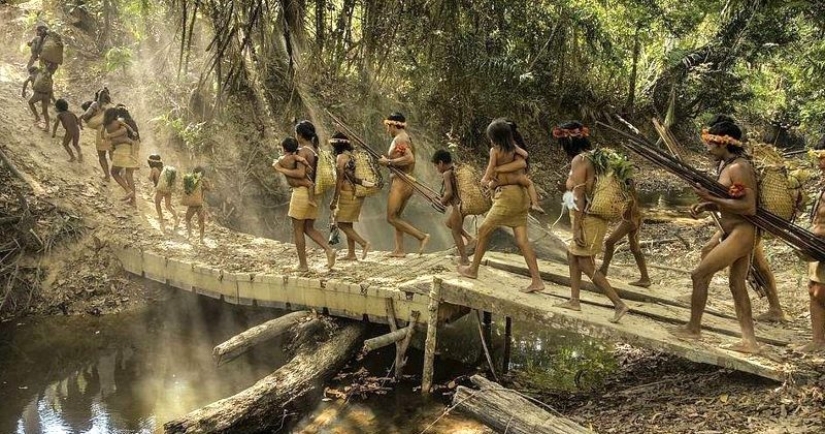
The mysterious people of Ava, or as it is also called ava-guage, are poorly acquainted with the achievements of modern civilization. They live in the Amazon jungle, go without clothes, hunt with bows and spears and huddle in huts made of clay and reeds. A gun or an iron axe for them, like 200 years ago, is of great value, and some of them have never seen a white man.
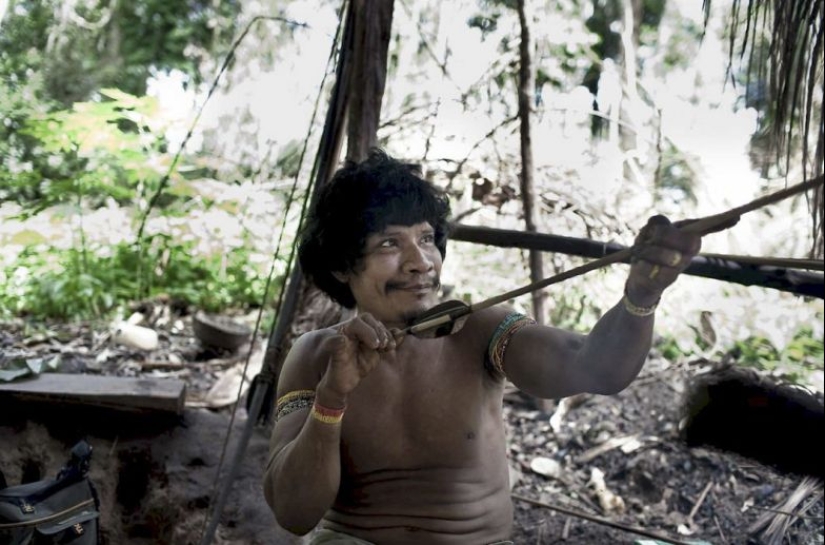
This way of life was not chosen by the Ava on a whim — this tribe is fighting for its survival and trying to protect itself from aliens as much as possible. 500 years ago, when Portuguese colonizers appeared on the territory of modern Brazil, this people was one of the most numerous in the Amazon. Scientists claim that there were at least 300 thousand Aba and they inhabited vast territories in the east of the South American continent.
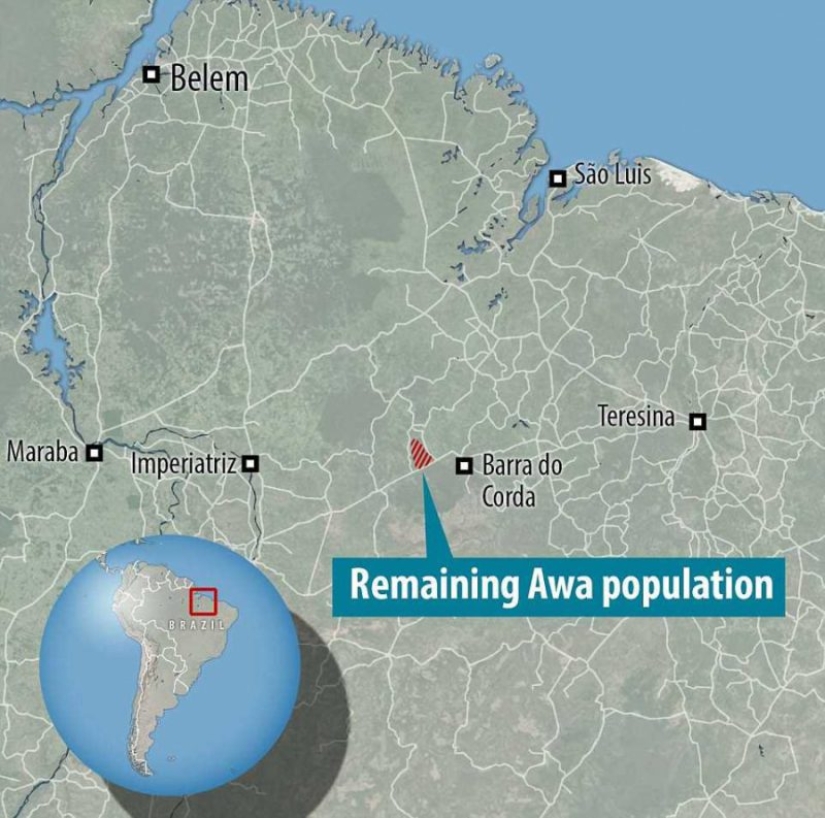
A tiny section of the Amazon jungle, where, if you're lucky, you can meet Ava
The Ava people, hardy and strong, were highly valued by the Portuguese as a labor force. Tens of thousands of Indians ended their days on cane and rubber plantations, and those who did not want to work for the aliens hid in the forests and waged a quiet but fierce struggle with the invaders.
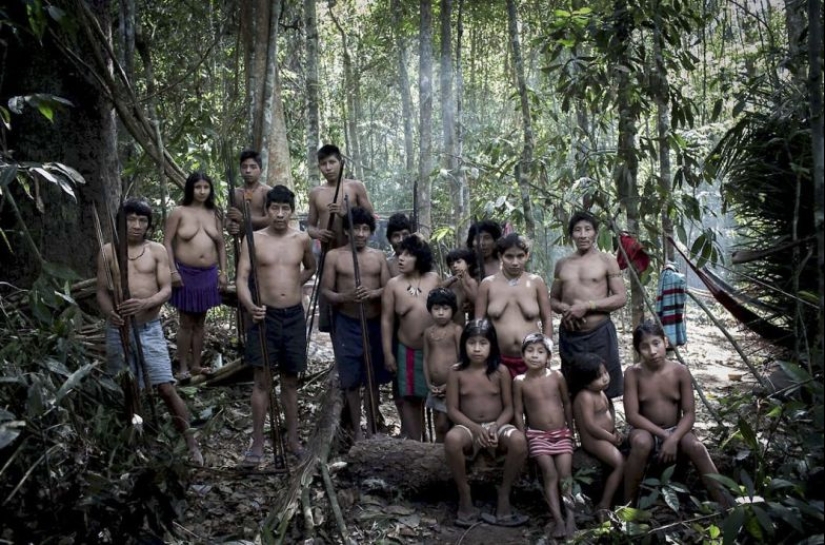
Infectious diseases brought from overseas killed no less aba than the guns of Portuguese soldiers and hellish labor on plantations. In 1835, after almost three centuries of fear, the remaining free Indians united and declared open war on the colonizers. Other Amazonian tribes also joined Ava-Guaga, who also became strangers on their land.
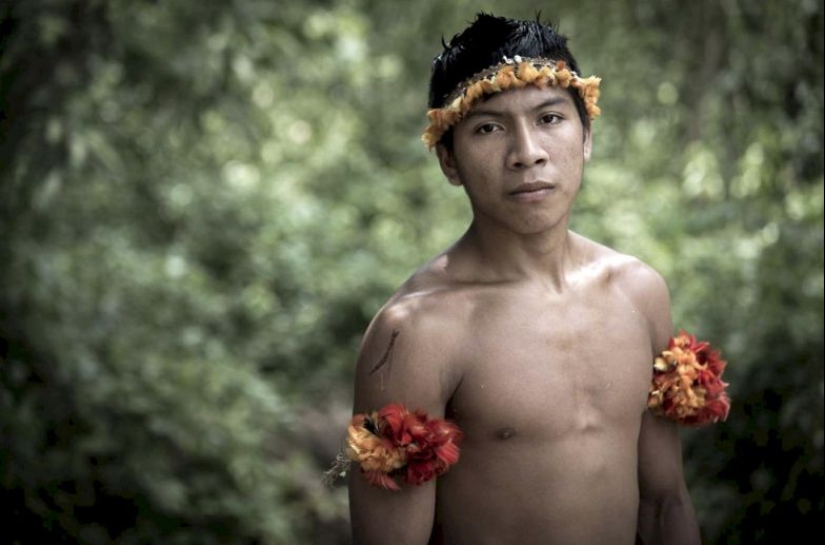
The bloody war lasted with varying success for 5 years, but despite the multiple numerical superiority, the AVA and their allies were defeated. The defeat cost the lives of more than 100 thousand Indians — a real hunt was declared for the surviving Ava, they were rounded up in the jungle with guns, cannons and huge packs of dogs.
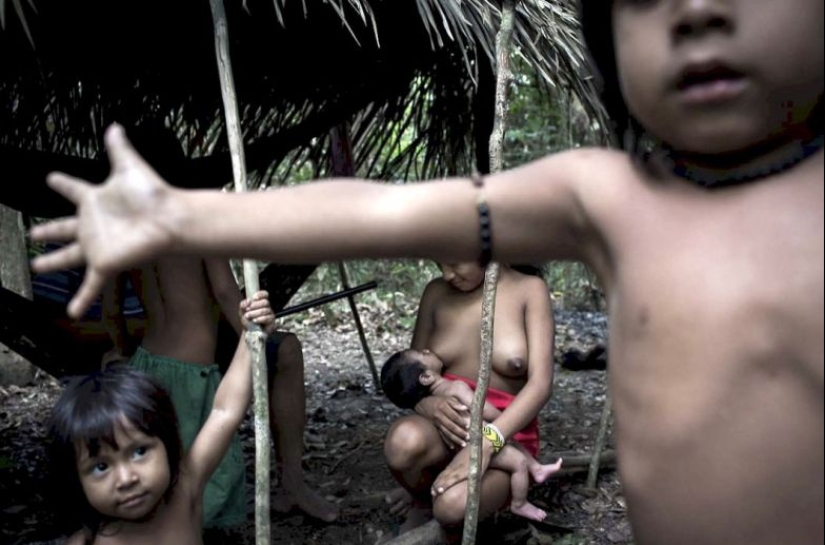
Few of the survivors of this bloody massacre, the aborigines went to the most impassable areas of the jungle and led a nomadic lifestyle for two centuries. In order to avoid meeting with colonizers, the Ava constantly moved and their way of life gradually adapted to nomadism. The men and women of the tribe have become skilled hunters, able to get the most careful game, and their children at 6-7 years old are already full-fledged getters.
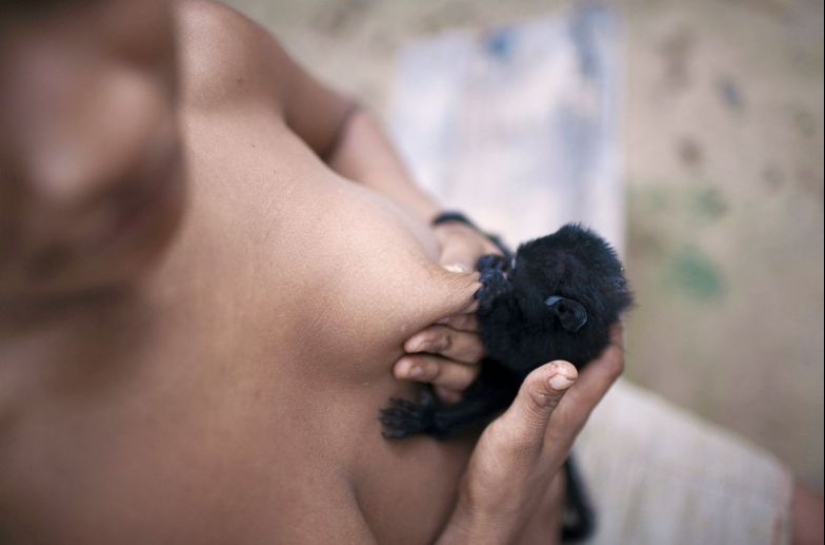
Ava learned in a matter of hours to erect temporary residential and outbuildings, which after a few days or weeks without regret will have to leave to go to another place. AVA families have a minimum of possessions — their whole life is designed to take children in case of danger and instantly dissolve into the endless green jungle.
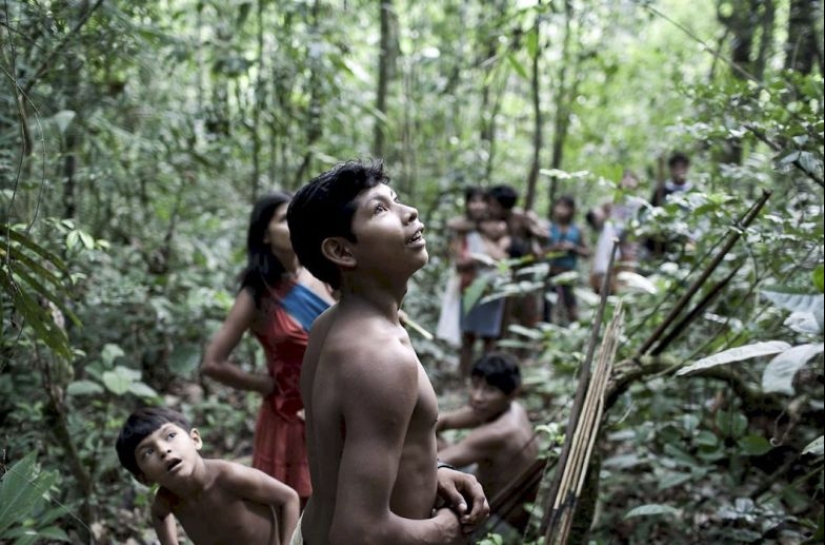
Today there are about 400 people calling themselves ava in Brazil. Almost all of them live in the Arariboya Reservation in the state of Maranhão. But there are no more than 100 real awa-guages leading a traditional Indian way of life. Unlike their brethren who have chosen a sedentary lifestyle in villages and entertaining tourists, these Indians have chosen a nomadic fate for themselves and do not stay in one place for a long time.
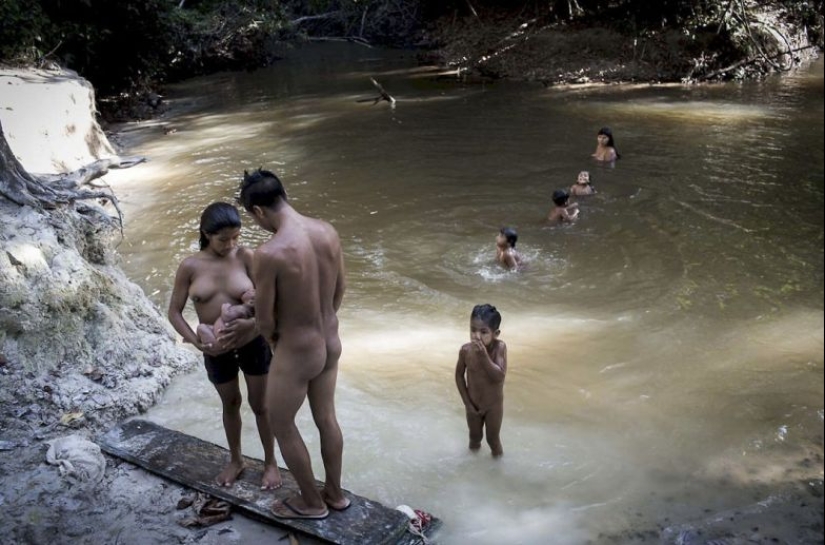
The state of Maranhão today represents a real disaster zone. Due to the predatory felling of trees, its territory has lost 75% of the humid Amazonian forests. Ava-guage can be safely called the guardians of the jungle, since their very existence gives more than 12 thousand square kilometers of the Amazon forest a chance to survive. The fact is that the Brazilian government has banned logging on the lands where these Indians live, and the Ava, as we have already said, roam continuously.
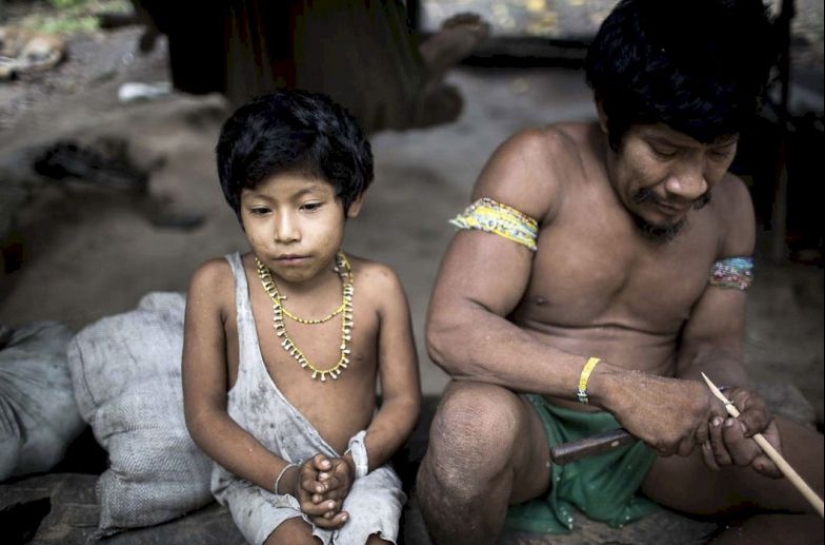
Not everyone follows the law and troubles do not bypass the reserved forests of the Indians. The roar of chainsaws and trucks often breaks into the life of the tribe, and Ava, having collected simple belongings, disappear into the forest again. In recent years, the life of the Indians has been complicated by incessant forest fires, which are arranged by the owners of local ranches. Without risking a conflict with the authorities, modern planters simply set fire to the forest to free up land for crops.
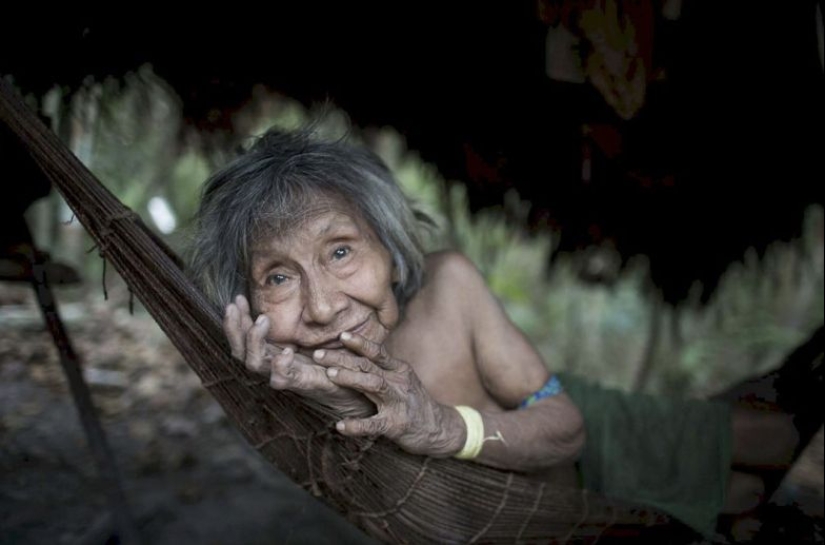
It was with such forest dwellers that fate brought Domenico Pugliese. The photographer is extremely delicate with his new acquaintances and tries to interfere in their lives as little as possible. Pugliese talks about his forest friends as very friendly and sincere people who love their native forests and try to live in harmony with nature.
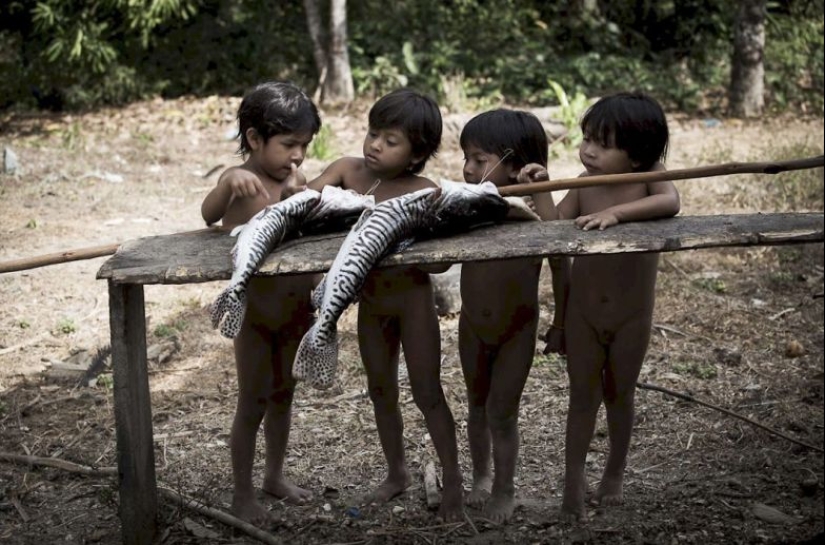
Once the Ava-Guajos were skilled farmers and kept cattle, but over the centuries of nomadic life they lost such skills. Now the Amazonian tribe lives by hunting, fishing and gathering. Despite the fact that the main part of the diet of Indians is meat, none of the members of the tribe, regardless of age, will not kill an animal for entertainment.
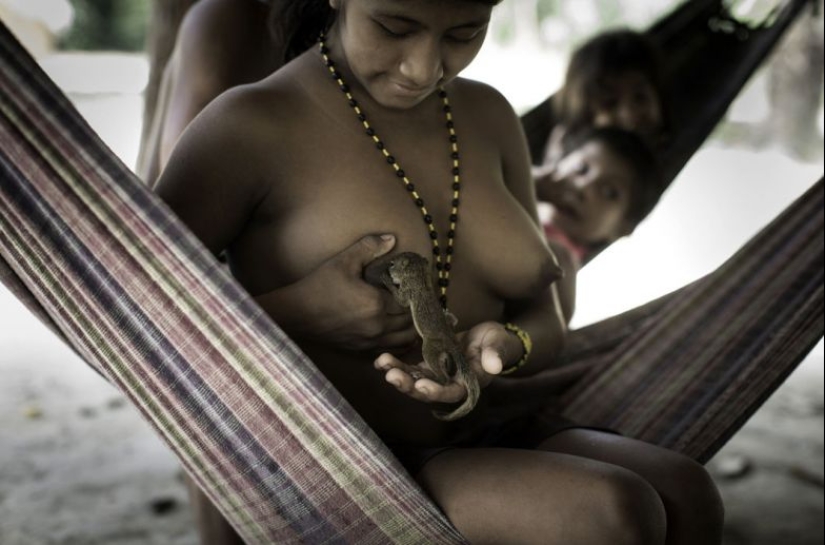
Ava families always have a lot of tamed wild animals — monkeys, squirrels, armadillos, agoutis, which they treat as brothers in the full sense of the word. Having come to ava for the first time in 2009, Domenico was amazed that the women of the tribe, in addition to their children, breastfeed baby animals. Such animals become members of the tribe and accompany the nomads on their endless journey through the forests.
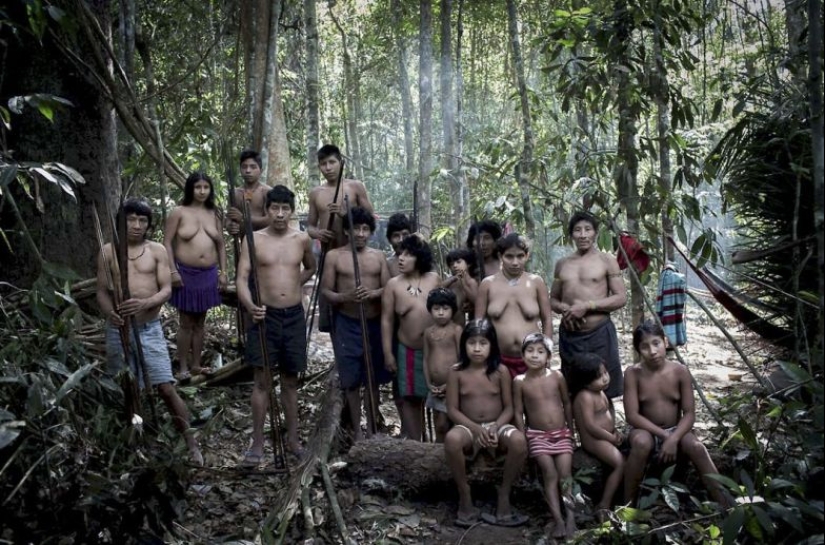
Even if the grown-up animal goes into the forest, it will never become food for Ava - the Indians will unmistakably recognize the "milk brothers" in the jungle and do not touch them. Such animals are called "hanima— - which means "one of the family". Indians have a special love for small monkeys, which are often attracted to simple work, such as picking fruits and chopping nuts.
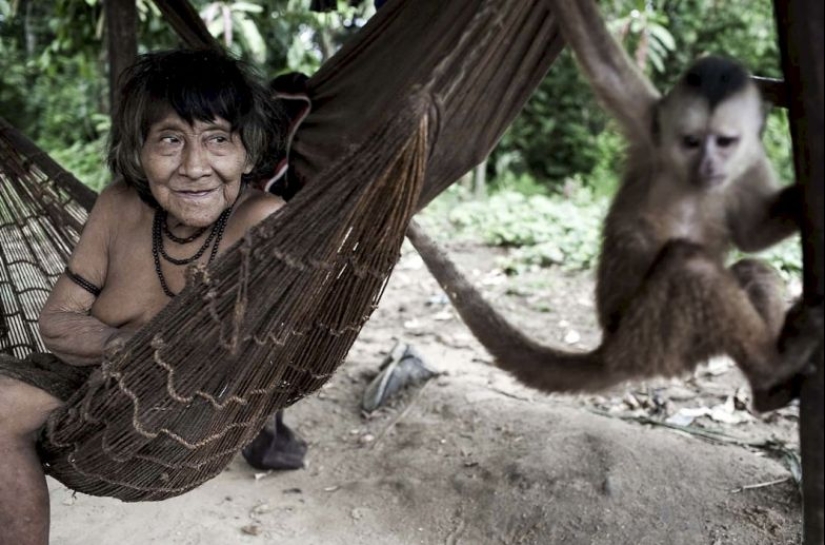
Pugliese notes that the way of thinking of aba people is unique and often incomprehensible to an outsider. In the first days after the acquaintance, the Indians greeted any appearance of the photographer with laughter. As it turned out later, they were not amused by the stranger's strange clothes, not his sunglasses, and not even the ridiculous trunks with photographic equipment in the Amazon jungle. Simple-minded forest dwellers were amused by the fact that Pugliese came to them without a family and persists in his bachelor beliefs. For Ab, family is the only support in this hostile world and the main value. An adult man without a wife and children is ridiculous, strange and ridiculous for them.
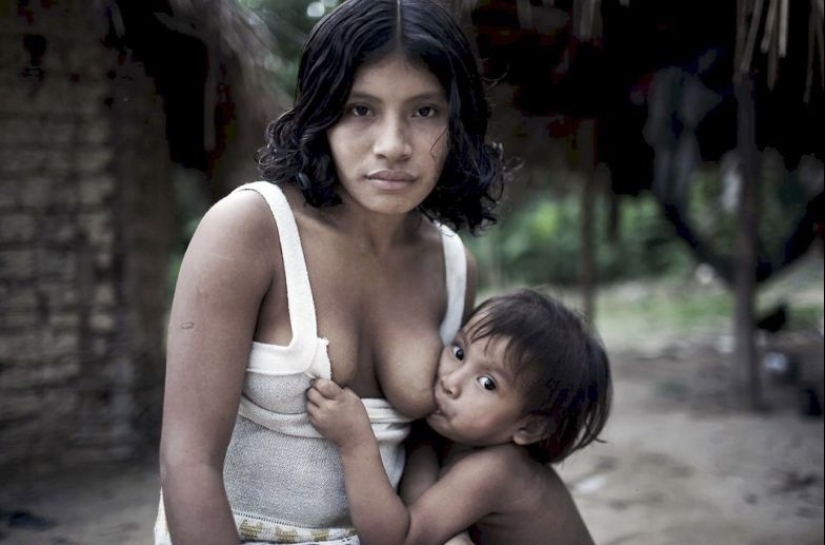
Domenik's sincere interest in the smallest details of Ava's life, endeared these people to the photographer. Pugliese managed to do what other photojournalists could not before him - shoot Indians in their daily lives, without alertness and posing. Thanks to this, we got a unique opportunity to learn about the difficult life of these people and pay tribute to the strength of their spirit. Please note that many Ava are smiling in the photo — the daily hard struggle for survival in this world has not broken them and has not made them callous.
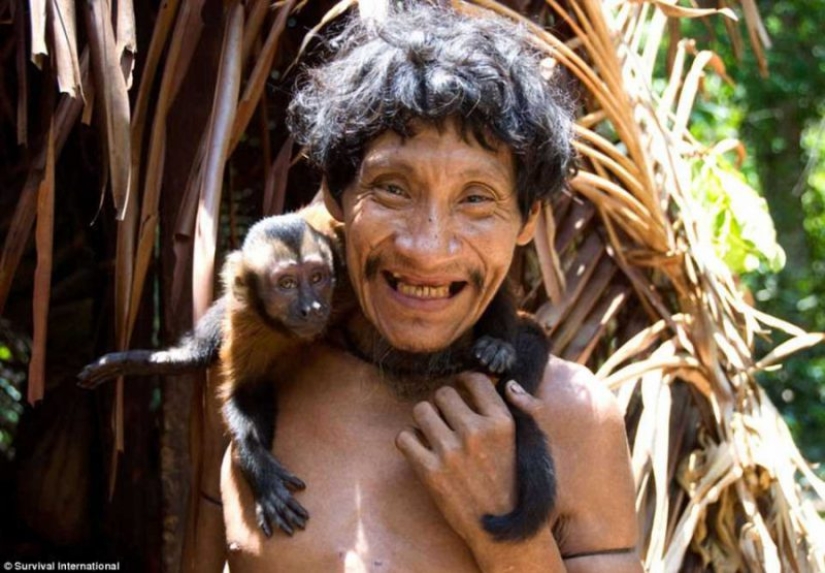
Recent articles

It's high time to admit that this whole hipster idea has gone too far. The concept has become so popular that even restaurants have ...

There is a perception that people only use 10% of their brain potential. But the heroes of our review, apparently, found a way to ...

New Year's is a time to surprise and delight loved ones not only with gifts but also with a unique presentation of the holiday ...